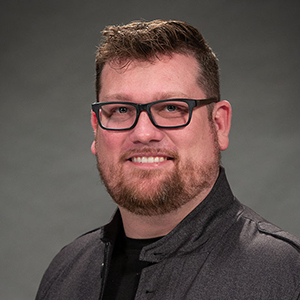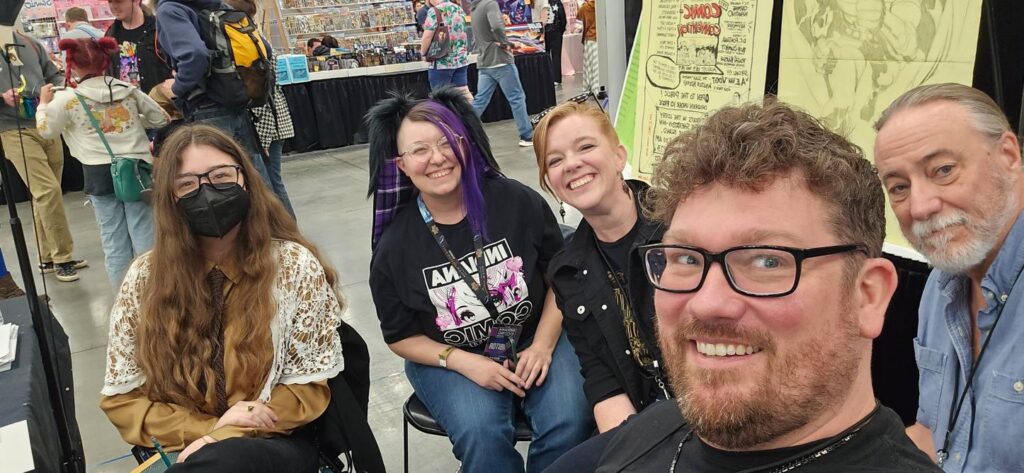
The act of storytelling is among the most profound of human endeavors. Across centuries and civilizations, we have crafted narratives to make sense of the universe and our place within it. Ray Bradbury understood this well. His work—equal parts poetry and prophecy—bridged the imagined and the inevitable, the speculative and the deeply human. And so, it is only fitting that the Ray Bradbury Center continues his mission not merely within the halls of academia but out in the world, where stories are told, shared, and passed on.
Since 2021, the Ray Bradbury Center, under the direction of Dr. Jason Aukerman, along with members of the RBC team, has brought programming to Indiana Comic Con, celebrating Bradbury’s lifelong engagement with visual storytelling. But in the spring of 2025, our presence at the convention expanded dramatically. A dedicated team—three graduate student interns, a part-time staff member, and two volunteers—delivered eight programs exploring Bradbury’s influence on comic books, Disney, censorship, and the perils of book banning. Our growing role at the convention even caught the attention of Fox 59, which invited me to discuss the Center’s work and our presence at ICC, highlighting the importance of bringing humanities scholarship into public spaces.
Our efforts were met with such enthusiasm that the convention granted us a booth in a premier section of the exhibition floor, where we found ourselves in the company of legendary artists and writers such as James O’Barr and Demetrius Witherspoon. This was more than an academic exercise. It was an opportunity to engage with hundreds of passionate readers, writers, and dreamers. Thanks to Indy Type Shop, we were able to display an Olympia SM5 typewriter—the very model Bradbury used during his most prolific years. Visitors sat before its keys, responding to writing prompts that honored the 75th anniversary of The Martian Chronicles.
Colleagues sometimes ask why we invest so much energy in public programming. The answer is straightforward: because it matters. As liberal arts enrollments decline, it’s clear that much of the public neither understands nor prioritizes the work we do. The Bradbury Center, small as it is, aims to be part of the solution—demonstrating the relevance of the humanities in ways that resonate beyond the university.
We know we won’t shift the cultural tide alone. But our time at Indiana Comic Con reinforced what we’ve long believed: that literature, art, and ideas must not remain confined to the academy, but must venture outward. They belong in the conversations people are already having—whether in classrooms or convention halls, in scholarship or in storytelling.
Click here to learn more about the Ray Bradbury Center.

Dr. Aukerman and members of the Ray Bradbury Center Team at the convention.

